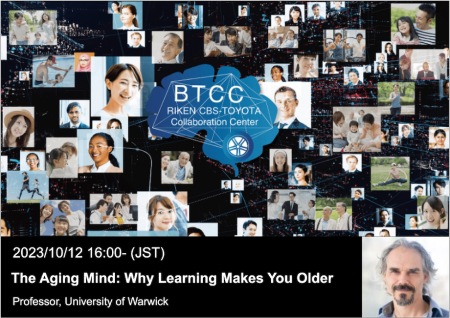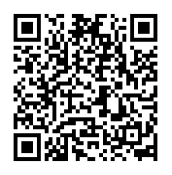- Home >
- 10/12にThomas Hills氏が特別講演「エージングマインド: 学習があなたを年老いさせる理由(The Aging Mind: Why Learning Makes You Older) 」を行います。
News
10/12にThomas Hills氏が特別講演「エージングマインド: 学習があなたを年老いさせる理由(The Aging Mind: Why Learning Makes You Older) 」を行います。
2023.04.27
The Aging Mind: Why Learning Makes You Older
The aging mind is usually described as a story of biological degradation. Telomeres unravel, antagonistic pleiotropies cause neural aging, and cognitive representations crystalize and become inflexible. More generally, numerous observations suggest that as measures of fluid intelligence decline across the lifespan, measures of crystalized intelligence (e.g., vocabulary) increase. Could increasing crystallized intelligence cause a reduction in fluid abilities? Using several data sets of empirical observations on the aging mental lexicon we've collected over the past decade, I will demonstrate how thinking about these problems from a slightly different perspective provides a simple and elegant solution to aging phenotypes as a consequence of lifelong learning. I will provide a model using network analysis to demonstrate this effect.
エージングマインド: 学習があなたを年老いさせる理由
精神の老化は、通常、生物学的劣化の帰結として説明されます。テロメアがほどけ、拮抗的プレイオトロピーが神経の老化を引き起こし、認知表現が固定化し、柔軟性を失います。より一般的には、生涯にわたる流動性知能の測定値の低下と結晶性知能(例:語彙)の増加が観察されています。この観察からは結晶性知能の増加が流動能力の低下を引き起こす可能性が示唆されます。 過去10年間に収集した高齢者の精神的語彙に関する実証的観察のいくつかのデータセットを使用して、これらの問題を少し異なる視点から調査してきました。その結果生涯学習の結果としての老化に関する様々な表現型が表れるという、単純で優雅な解決策を提供する方法を示すことが出来ます。この効果を示すために、ネットワーク分析を使用したモデルを提示します。
登録リンクはこちらから
https://us02web.zoom.us/webinar/register/WN_enu8juBcT8S-7TZavIrk0w#/registration


